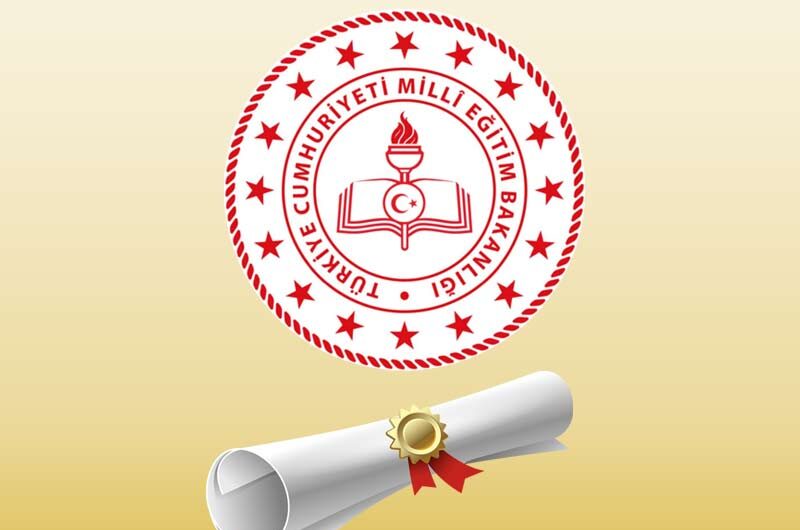Studying abroad is an adventure, a chance to learn about new cultures and languages, but did you know it’s also an ideal time to enhance your CV? Many international students miss out on the opportunity to make their resumes shine while overseas. So, what are the CV tips for those studying abroad? Start by incorporating unique experiences and skills you’ve gained during your time abroad – it’s a goldmine of opportunity! Employers are always on the lookout for candidates with diverse backgrounds. This guide provides resume building study abroad strategies that go beyond traditional advice. Want to know how to write a standout CV? Make sure to include experiences that show adaptability and initiative. Don’t just list your study abroad experience; make it a highlight. As an international student, build a résumé that showcases not only academic achievements but also practical skills and intercultural competencies. Follow this study abroad career advice to stand out in the crowd.
Essential Components of a Standout CV
When crafting a standout CV, international students should focus on skills that demonstrate initiative and adaptability. Take advantage of your study abroad experiences by highlighting activities that set you apart. Maybe you managed a project in a foreign language or collaborated with diverse teams. Such accomplishments are not only impressive but also valuable in today’s global job market. Integrate these elements to breathe life into your résumé. Start with clear headings like “International Experience” to draw attention immediately. Relate your experiences back to the professional world, showing how they equip you for industry challenges. Diversify your skill set, showcasing both soft skills and technical abilities gained while abroad. Every detail can play a crucial role in picturing you as a well-rounded candidate. Avoid generic statements; instead, provide concise yet impactful narratives of your journey. Utilize CV tips study abroad to make your international student resume shine brightly in the eyes of potential employers.
In crafting a standout CV, attention to detail is paramount. Begin with a compelling personal statement that encapsulates your study abroad experience and objectives. Be crisp and clear, painting a picture of your journey and how it shapes your career goals. Include relevant sections like “Education,” where you emphasize institutions attended overseas, and “Skills,” highlighting attributes enhanced by life abroad, such as language proficiency and cultural acumen. The “Experience” section should convey your adaptability—did you intern with a local company or volunteer? Don’t skip “Achievements”; list accolades gained during your time abroad. These elements collectively transform your international student resume from ordinary to extraordinary. Tailored details will boost your visibility in recruiters’ eyes. Incorporating study abroad career advice into these sections not only strengthens your CV but also aligns it with resume building study abroad strategies. By doing so, you’re set to create a memorable impression.
Crafting a remarkable CV involves tapping into essential components that demand attention. Start by honing in on a strategic layout that guides the reader seamlessly through your story. An engaging “Summary/Objective” section should succinctly introduce your journey, goals, and value proposition. Next, under “Education,” spotlight your academic endeavors abroad, perhaps noting any scholarships or honors. Move to “Experience,” where tangible examples like international internships or leadership roles come alive. Highlight skills sharpened by foreign exposure, such as problem-solving or cross-cultural communication. Adding a section for “Projects and Partnerships” could exhibit unique collaborations or research work from your study abroad period. Don’t forget to polish your CV with a “References” list, preferably international contacts who can vouch for your global prowess. By strategically structuring these elements, your international student resume will not only capture interest but will also enhance your chances of standing out with standout study abroad career advice.
Leveraging International Experience to Enhance Your Resume
Studying abroad opens doors to unique experiences that can transform your resume. Imagine this—you’re living in a new country, adapting to its culture while tackling academic challenges. That’s adaptability in action! Employers crave such resilience. In your CV, highlight these experiences. Use concrete examples—did you manage a group project in a foreign language, or navigate cultural differences during internships? These stories speak volumes. Employers appreciate candidates with firsthand global exposure because it implies you’re ready to handle diverse work environments. So, when thinking about CV tips for studying abroad, remember this: detail your international journey. By including these insights, your resume becomes a compelling narrative of growth and learning. It’s not just about listing experiences but about painting a picture of a proactive, cross-culturally savvy candidate. When crafting your international student resume, remember every anecdote of your overseas adventure is a step towards your career goals.
Joining university clubs or activities while studying abroad is a goldmine for resume building study abroad. It’s prime territory to demonstrate leadership and initiative—two key attributes employers value. How to write CV sections that shine? Include roles like organizing events or leading a team in multicultural environments. These positions show you’re not just a participant, but a leader adapting to diverse settings. Employers want international student resumes that resonate with adaptability and leadership, not just academic achievements. Interactive clubs or volunteer work add more than just a line to your resume; they add depth and show your proactive nature in an international arena. By presenting these stories, you’re aligning with study abroad career advice that urges skill demonstration beyond textbooks. So, weave your overseas contributions into your CV—showcase how you’ve thrived and learned. This is how you craft a CV that stands out, in any job market.
International students often overlook the wealth of international experience at their fingertips. Here’s a secret: leverage every opportunity during your study abroad to boost your CV. Employers gravitate toward candidates who can navigate different cultures seamlessly. That’s where your international stint comes in. Were you involved in a research project with global peers or volunteered for a local community initiative? Such experiences are nuggets of gold for your CV. Highlight these to show your ability to thrive in diverse environments. Remember, a strong CV doesn’t just recount what you did—it reflects how these experiences have shaped you into a versatile candidate. So, turn your international exposure into an asset. It’s about turning the ordinary skills into extraordinary ones that reflect growth. By weaving your global experiences into your resume, you’re embracing the ultimate study abroad career advice: stand out in a world that craves innovative and adaptable professionals.
Common Mistakes to Avoid When Crafting Your CV
When it comes to crafting an international student resume during your time abroad, there are some roadblocks you’ll want to sidestep. One common blunder? Overstuffing your CV with every job or activity you’ve participated in. Quality over quantity, my friend. Potential employers aren’t looking for an art gallery of your life; they want a concise snapshot. Highlight pivotal roles that demonstrate adaptability and initiative. Another pitfall is neglecting the cultural and language skills you’ve picked up – they’re more valuable than gold in today’s job market. Not to mention, skipping out on providing context for foreign work or academic experiences can leave employers scratching their heads. Remember, when applying resume building study abroad strategies, aim to clearly articulate your experiences in a way that shows your growth and flexibility. These CV tips study abroad ensure you don’t fall into these traps, paving a smoother path for your career trajectory.
Let’s talk about the danger of jargon. While piecing together the puzzle that is an international student resume, it’s tempting to pepper it with buzzwords. Stop right there. Instead, focus on clarity and simplicity. Employers want to see clean, straightforward language that speaks volumes without needing a dictionary. Something else to dodge? Ignoring the power of formatting. A cluttered or chaotic layout won’t do you any favors in the search for how to write CV guides. Your CV must showcase a polished and professional look with laser-focused section headings. One last note of caution: missing out on aligning your CV with the job description. That’s akin to shooting arrows in the dark. Tailoring your resume building study abroad to fit specific roles? That’s the bullseye. Keep tabs on these common pitfalls, and you’ll create an international student resume that hits the mark. Remember, these CV tips study abroad could make all the difference.
Another misstep on the road to resume success is overloading it with personal details. Picture this: your CV should be more like a well-tailored suit, rather than an autobiography. While it’s great to be proud of your journey, leave out the unnecessary details that don’t speak directly to the role at hand. Keep your international student resume sharp, refined – the kind that speaks fluently to recruiters. And speaking of communication, be vigilant with grammar and spelling; they’re your first impression. An error-ridden CV is like showing up to an interview in pajamas. Finally, don’t underestimate the importance of a strong personal statement. This is your elevator pitch in the world of resume building study abroad. Make it compelling and memorable. Reduce the clutter, and your resume will resonate with how to write CV wisdom and truly reflect your shining potential, ensuring those CV tips study abroad make a lasting impact.
Disclaimer: This article is for general informational purposes only and you are strongly advised to consult a professional to evaluate your personal situation. No liability is accepted that may arise from the use of the information in this article.







